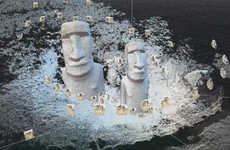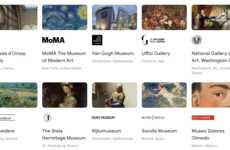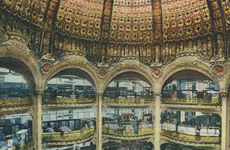
Google's Curio-cite Explores the Hidden Marvels of Paris
References: blog.google & engadget
Google's Street View system makes it easy for anyone with an internet connection to explore the streets of any city, but the company's new Curio-cite series uses that same technology to explore more obscure and hidden areas of one of the world's most historically and culturally important cities: Paris. Curio-cite is a series of 360 degree videos that take place in Parisian locales that people would never be able to see otherwise.
Part of Google Arts & Culture, Curio-cite follows artists, guides, and experts on journeys through hidden and "forgotten corners" of Paris, according to the Curio-site page. These include a tour of the basement of the Opera Garnier, the place that inspired 'Phantom of the Opera,' and a 13-storey condemned building that houses the world's largest street art exhibition.
Part of Google Arts & Culture, Curio-cite follows artists, guides, and experts on journeys through hidden and "forgotten corners" of Paris, according to the Curio-site page. These include a tour of the basement of the Opera Garnier, the place that inspired 'Phantom of the Opera,' and a 13-storey condemned building that houses the world's largest street art exhibition.
Trend Themes
1. Curio-cite Exploration - Using 360-degree videos to explore hidden or less frequently visited locations within popular cities can be a disruptive innovation opportunity for tourism and cultural industries.
2. Virtual Tourism - Developing virtual tourism series can revolutionize the tourism industry, providing opportunities for people who might otherwise be unable to travel, and granting exposure to lesser-known destinations.
3. Interactive Learning - Creating interactive and educational content for 360-degree videos can pave the way for innovation in the Education Technology industry.
Industry Implications
1. Tourism - Using technology to create virtual tourism experiences for people who can't travel could help revolutionize the industry and make unique destinations accessible to everyone.
2. Cultural - Creating virtual tours of museums, historic sites, and popular cities, can offer greater access to important cultural experiences.
3. Education Technology - Incorporating innovative and interactive learning experiences based on VR tours of culturally significant sites into classroom curriculum can lead to future advancements in the industry.
2
Score
Popularity
Activity
Freshness























